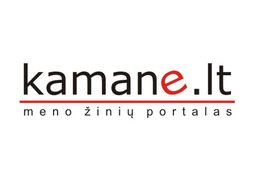Ask yourself what you are looking for 2016-08-19
After glancing at the dark cover of the latest Robertas Keturakis' collection of poems Night's White Clouds (Nakties baltieji debesys. Kaunas: Pasaulio lietuvių kultūros, mokslo ir švietimo centras, 2016.), on which artist Daiva Šulgaitė drew cosmic (or maybe ethnic?) signs with simple, silver-colored patterns, luminous in the dark blue background, the title might seem a bit gloomy. Let's not be fooled: light clouds are floating in the black night's sky and not everyone is able to see them. Poet poses a challenge - to be able to see the light in the dark of night.
Marija Djačenko, "Time to open the windows and clear the air" 2016-08-17
I remember Marija Djačenko from a time when many knew her as the young writer who had published a collection of short stories You Agree (Sutinki, 2005) while still studying in high school. Later on Marija left for England and appeared again in the literary context after 8 years when she published a book of short stories Full of Grace (Malonės pilnoji). A new literary project initiated by Marija came to life recently: charlesmethugo.com; it has become a pretext to start a conversation about memories, Europe, books and ideas.
Like an ox’s lick 2016-08-12
Essay today is prone to ease and diffusion of genres. The narrator in G. Bleizgys book Ox (Jautis, Vilnius: Lietuvos rašytojų sąjungos leidykla, 2016.) is able to reflect on a mother's death in one paragraph and to interpret Arnas Ališauskas' poem in the other. However, such choice does not prevent the reader from following the lines of the text and draws one into poetically and sensitively reflected authentic events as well as existential ponderings about life, death and continuity.
How Viktorija Daujotytė-Pakerienė reveals Sofija Čiurlionienė-Kymantaitė 2016-07-01
Sofija Čiurlionienė-Kymantaitė (1886–1958) was a writer, playwright, poetess, critic, translator, teacher, lecturer, head of scouts, creator and practitioner of spiritual and moral development theory, activist and creator of the country, i.e. a woman whose fate was, in words of the literature researcher Viktorija Daujotytė-Pakerienė, “to lead and manage”. This year the 130th birth anniversary of S. Čiurlionienė-Kymantaitė is commemorated in Lithuania.
A complimentary word to anger 2016-05-31
Reading Sigitas Geda's diaries Blossoming Potato Dreams (Žydinčių bulvių sapnai, Vilnius: Lietuvos rašytojų sąjungos leidykla, 2015) might cause some confusion. Author is a well-known and recognized poet, but perhaps it would not be too bold to suggest that his diaries will irritate many, leaving and unpleasant impression. S. Geda does not evade a strong or vulgar saying, nor a fierce assessment.
Young women's writing: poetry of the senses 2016-05-13
It is good to know that poetry books published by young writers were included in the list of top 12 most creative books of 2015. It is the creative verdure, which would code interesting and innovative poetry forms and contents of meaning that literary field lacks, especially poetry. Therefore, new names and the authors' first books are not only expected, they also intrigue. One of the young poets invites to creatively experience longing of home and the other one to know the woman's world.
Maranta - a journey towards self and faith 2016-05-04
Birutė Jonuškaitė's novel Maranta (Vilnius: Lietuvos rašytojų sąjungos leidykla, 2015) reveals the destinies of three generations of women through the main character Rasa's tireless search for peace of mind. We learn not only about their love stories, but also the details of life in a remote village on the Lithuanian-Polish border; the character's strength (especially women's) which they draw from the customs of their land, their family and faith.
Almost all of Alfonsas Andriuškevičius 2016-05-02
What I find interesting in the Lithuanian literary history are the people who write without having a philological education, for example: graphic artist Jurga Ivanauskaitė, art critic Kristina Sabaliauskaitė, physicist Ričardas Gavelis or philosopher Dalia Staponkutė. Such writers have a distinct way of understanding literature. Art critic Alfonsas Andriuškevičius can also be put next to the authors without philological education.
So that the draughts would not blow what is best 2016-04-15
D. Kalinauskaitė's The Hause of Draughts (Skersvėjų namai, 2015, Tyto alba) speak of real and imaginary, close and strange, physical and spiritual home, about the droughts blowing in them an inside a person. The book of everyday problems, full of imagination and various cultures, forces the reader to think and protect from the draughts "what is best."
Aidas Marčėnas' poetic world In one 2016-04-07
As a commodity code 9789986398516, encoded in his latest collection of poems In one (Viename, 2015, Lietuvos rašytojų sąjungos leidykla) poet Aidas Marčėnas remains faithful to his creative style. Using the number categories and gentle irony poet encodes the experiences of the subject, analyzes the fundamental topics of being and creation in hope that the reader will recognize these codes and consume his poetry.


















